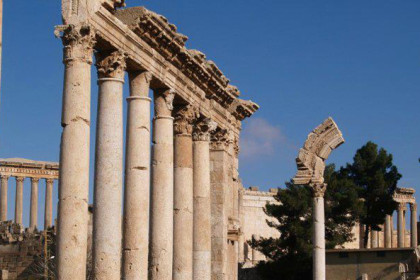
Rami Haidar, distinguished citizen of Parma, is a particular character: specialized doctor in Anesthesia and Intensive Care, of Lebanese origin, he has been living in Italy since 1977. He is son of a poet and writes himself poems in Italian; in collaboration with linguistics experts, he is translating in Italian his father’s poems and is planning his first book, a collection of Syrian-Lebanese sayings and proverbs.
What did lead you to choose sayings and proverbs as the theme of your book?
Arabs have a real fondness for proverbs as a source of popular literature, for this reason since about five years I have been dedicating myself to the collection of this material. Like all folk cultures, some are related to personal life, family, social, pastoral and agricultural, commercial, religious and intellectual life.
A cultural richness to discover…
The sense, the message of an idiom, of a proverb or a saying does not come from understanding the individual words that make it up, but from a vision that refers to the particularities of culture, habits and social values of that society. History and experiences inherited by past generations, even when the actual values of today’s society have passed certain convictions, remain in social DNA, and somehow compel each of us to overcome certain cultural dogmas one by one. In addition, the particular style of proverbs, their musicality, have in them a certain beauty, a poem that goes beyond the precise meaning… using popular sayings allows you to speak irreverently without disrespecting the other party, and under certain conditions may stimulate someone to make important decisions about their own lives.
In these ancient words you see also some message for the present?
Character traits that emerge from these sayings are related to intimate quality of society and people, honesty and villainy, prudence and recklessness, wisdom and deficiency, truth and falsehood, ambition and selfishness, hypocrisy and honesty, modesty and pride, laziness and activity, self-esteem and lack of character, generosity and greed, courage and cowardice, inconstancy and stubbornness, anger and patience, experience and judgment, luck and bad luck. From this popular “wisdom” is easy to derive a lesson for the present, the message is clear, if you pay attention to essential most part of apparent problems disappear.
Some examples?
“The mice have agreed on neighbor’s bread” means “It is likely that the wicked ones come to an agreement on someone else’s property”; “The angels come and the devils go” is said when someone comes while another is preparing to leave. Very timely “If there is no yeast, bread will not grow”, usually referred to trade: if there is no gain it’s impossible to go on.
 English
English  Italiano
Italiano 



